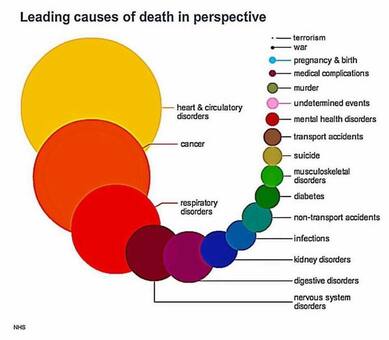
In this context, physicality is interpreted as how we tend to our embodied existence. This means our bodies, how we condition them, how we nurture them, how we feed them, and how we house them. In a nutshell, if we want full and meaningful lives, we must tend to the basics of our existence first. We need to exercise and nurture our physical bodies and we should aim for stress-free days and comfortable accommodations.
In the Taiji world there is an idea floating around some traditions that practitioners should not engage in strength training as it will hinder Qi flow. I absolutely do not buy into this, and in fact don't think it is a credible theory at all. First of all, Qi is not some magical force that only belongs to a few dedicated practitioners, and is not something that can be hindered or lost. To paraphrase my teacher, Qi is the intermediary energy between our physical essence and our higher, or spiritual essence. It is a vibration that exists in every living thing. Second, a look back at the history of Taiji practice totally destroys this idea. The people who invented these arts were not monks and magicians living in mountain monasteries watching birds and snakes fight. They were simple villagers who had to engage in hard labor on farms, roads, and village construction. They worked their asses off and no doubt were more physically fit than the many keyboard philosophers who are floating these empty theories of avoiding physical fitness so as to maintain their soft Qi bellies.
In my training, we emphasize strength training as one aspect of a complete curriculum. This doesn't mean being a muscle head or a cross-fit enthusiast, but it doesn't rule those out either. I short, Taiji requires lots of movement. The advanced training in Push Hands, San Shou, Pao Cui, and Sabre are demanding on the body. Strength training helps to condition the body and to prevent injury. But beyond that, it's good for you.
An adjunct to strength is stretching and agility training. Many schools of Taiji/Qigong have stretching routines. Further, the practice of Hatha Yoga integrates seamlessly with Taiji training. Basically, one wants to prepare the field; to open the joints and many pathways in the body to allow for energy flow, both good energy in and bad energy out. A brisk practice of Yoga or Gongfu that will both stretch and heat-up the body is a good way to flush out toxins through sweating and internal fire (Agni).
An important factor to all of life is getting the proper amount of sleep. This is of course especially the case if we live an active life. We need to allow the body the time to rest and heal. Seven or more hours a night, every night is crucial. Sleep deprivation is a major source of stress and illness. If one doesn't have the time to get enough sleep, major life changes are in order. I could write a lot more about sleep and stress management. I will do another blog entry on this subject after this series.
Finally, we need to look at our day-to-day lives. For many this unfortunately means a certain amount of stress. Stress is not something that exists in our world, it is an inner reaction to the outer reality of our world. While it takes time and focus, and for many major changes, stress is totally avoidable. It does not have to be a part of our lives.
In general the world we live in is the world we create. By living skillfully and intentionally we can have the lives we want. There are of course things we can't control and situations that are outside our design, but we can learn to navigate life in a much more orderly manner, and in turn live into the ideal situations we envision. This also is a very big topic that can only be touched upon here, but one that is nonetheless important to our physical existence; it is our physical existence. And it manifests from our internal lives outward, not the other way around.
In short, the best way to approach the physicality of life is through skillful living. Good Dharma equals Good Karma*. It's really that simple
*In this context, Dharma is defined as: the proper order of things and the kind of conduct that maintains it. Karma is defined as: action that causes an effect. Together they interact for a wholesome life.
 RSS Feed
RSS Feed
